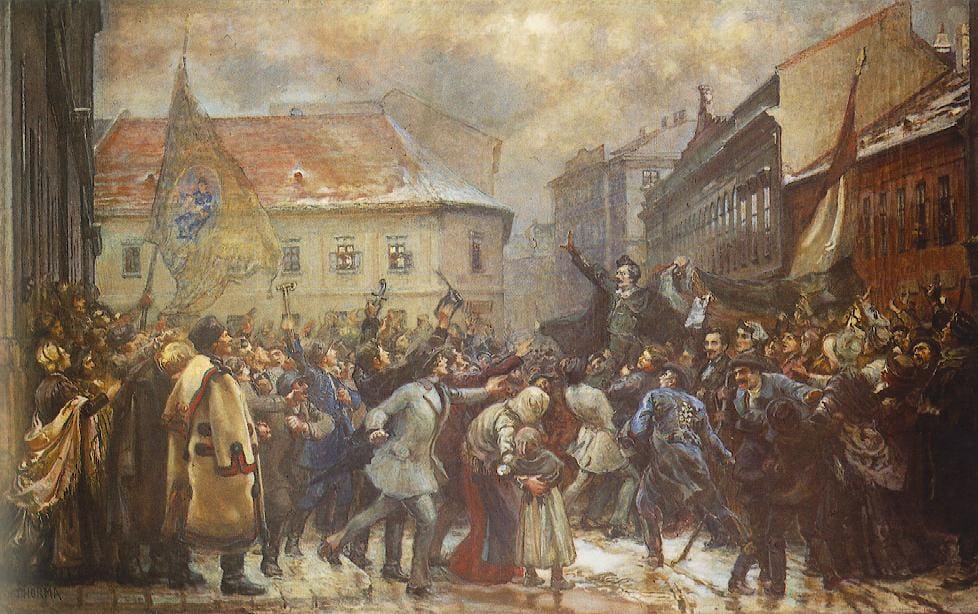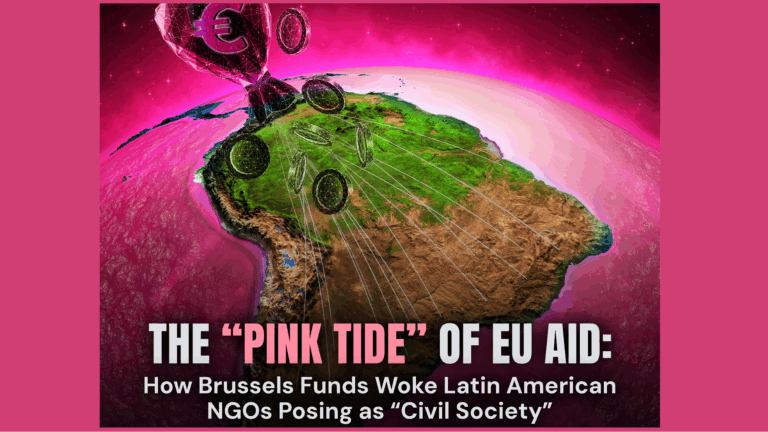I was born in Budapest, Hungary, around the time of the 1956 Hungarian Revolution, and so grew up in a Soviet-type socialist regime during the 1960s and 1970s that did not allow free press and free media, and did not tolerate free speech, or freedom of assembly. It likewise did not allow citizens to vote in free elections, which young adults of today take for granted. In addition, it suppressed public opinion, restricted the right to travel, and manipulated our entire patterns of thought.
This evil dictatorship created a new socialist citizen, a kind of Homo Kadaricus (named after Communist Party First Secretary János Kádár) as the anti-Kádár opposition political analysts called it.1 Homo Kadaricus was a brainwashed victim of international communism, orchestrated from Moscow. Patriotism, for example, was labelled as treason by socialist rulers, and considered a vicious crime. In addition, the Kádár regime dehumanized citizens, strangled creativity, and stifled fundamental freedoms. On the other hand, the Kádár leadership allowed some private ownership and even encouraged mixed privatization to a certain degree. Those who led the regime funded this economic revival through Western loan packages which imposed a heavy debt burden on society, particularly in the 1980s.
Regime change in Hungary was a farce and a well-planned deception, which in reality did not take place until the 2010 elections and the implementation of the new Fundamental Law, which replaced the obsolete socialist-drafted constitution
When Mikhail Gorbachev and the Soviets relaxed their control over the Eastern Bloc nations in 1989, regime operators quickly sought to find a compromise with the new opposition to salvage their power and continue to maintain their overall stranglehold on society by alternative means, mostly political and financial. This led to spontaneous privatization, which created a new millionaire class from the ranks of ex-socialist power players and unscrupulous wheeler-dealers, and generated a form of ‘grey market’ which the state did not have adequate oversight of in terms of taxation or regulative control. But the sad reality is that real regime change never actually occurred. The old dictators were kept in positions of influence. They were allowed to prosper and seek political office. As such, regime change in Hungary was a farce and a well-planned deception, which in reality did not take place until the 2010 elections and the implementation of the new Fundamental Law, which replaced the obsolete socialist-drafted constitution. The purpose of crafting the illusion of ‘regime change’ was to salvage the autocratic power of the old Kádárist elite, by also allowing anti-communists and nationalists to have a role in government with the notion that this new freedom-loving patriotic side would be defeated later. But one thing they did not factor into their strategy, while rolling out their game plan, was a young, talented, and committed political genius called Viktor Orbán. He threw a real curveball at the socialist–liberal coalition’s cynical scheme to retain power. It took time and patience to accomplish this, since the old Kádárists were skilled at establishing alliances with the international liberal elite, including billionaire George Soros, which gave them an edge in controlling major media strongholds and the liberal press. However, over time, the patriotic citizens and Orbán came out on top in Hungary. He and his compatriots systematically destabilized and unravelled the socialist–liberal alliance by pointing out the latter’s dependence on foreign interests and disregard for the national interest.
Hence the birth of a new democratic model in Hungary, which is anti-liberal, anti-federalist, and anti-globalist. And in doing so, this model has achieved full legitimacy in Eastern and Central Europe over the past decade or so. It also has many hopeful supporters throughout Western Europe, and has a strong core of followers in the United States as well. Initially, the Poles, Czechs, Croatians, and Slovenians followed suit, and later the French, Italians, British, Austrians, and other EU nations established their own versions of patriotic, EU-sceptic movements.
In 2017, the Budapest Business Journal published a Eurobarometer survey indicating that most Europeans have very strong bonds with their homeland; more than half of EU nationals indicated ‘very strong’ ties (57 per cent) and one third expressed ‘rather strong’ feelings. As for specific nationalities, the Danes came out on top at 87 per cent, followed by the Greeks, the Bulgarians, and the Irish.2
Hungarians and Poles, often portrayed as being among the most patriotic, were ranked ninth and tenth in Europe (in both cases, 63 per cent of those polled expressed ‘very strong’ sentiments towards their homeland), followed by Estonia and Sweden. Belgium, however, where the EU is headquartered, was ranked last, with just roughly 40 per cent of those asked expressing patriotic feelings for their homeland. The United States, traditionally a very patriotic country, is on a downward slide as well. According to a comprehensive poll by the Gallup Organization, just 47 per cent of Americans are unabashedly proud to call themselves Americans, while during the past century this figure was significantly higher.
Recent political manoeuvring by several member states in Europe confirms that France, Italy, Poland, Hungary, the CzechRepublic, Croatia, Slovenia, and other nations are increasingly rejecting a superimposed federalist Europe run from Brussels, and contend that Europe should move in the direction of an alliance of free and sovereign nations, and never allow a totalitarian UnitedStates of Europe. The latter would not serve US interests either, since an artificial, arrogant, and ambitious European empire would likely disrespect and challenge US interests internationally. Hence the amicable relationship between former US President Donald Trump, Polish Prime Minister Mateusz Morawiecki, and Hungarian Prime Minister Viktor Orbán. They see eye to eye on rejecting uncontrolled migration and fostering patriotic local interests throughout Western civilization, insisting that this is the ‘trump card’ (the key) to survival of the same.
Globalists and migration-embracing liberals in major power centres are huffing and puffing over this new patriotic drive, condemning both the US and Hungarian models. However, this model is now becoming widespread as other legitimate democratically elected leaders such as Jarosław Kaczyński in Poland, Matteo Salvini in Italy, Marine Le Pen in France, and Nigel Farage’s Eurosceptic party in the United Kingdom embrace it. The liberals’ frustration is intensifying as this new patriotic model seems not only to be gaining legitimacy, but to be spreading around the globe.
When immigration slips out of control, ignores the national interest, and imports alien cultures and incongruous religious views into a society, it can facilitate a nation’s demise and downfall
Those lawmakers and liberals who argue that illegal immigration is fine because America is a ‘nation of immigrants’ propagate a cynical misrepresentation of American history. This comparison is also a twisted proposal when it comes to security and nation building. Over the course of history, occasionally, immigration can contribute to a society’s well-being, when it is prudently managed. On the other hand, when immigration slips out of control, ignores the national interest, and imports alien cultures and incongruous religious views into a society, it can facilitate a nation’s demise and downfall. There are historical examples to prove this. It is vital to reiterate that the social contract in the United States—as intended by the Founding Fathers— is a compact between and among Americans, not Americans and the world’s citizens.
Thus, the new power struggle is no longer between right and left, capitalists and socialists, but between nation-building patriots and mixed-society-pursuing globalists. Today, it is clear that a conservative (patriotic) illiberal version of democracy is spreading across continents, attaining full legitimacy by way of charismatic new leaders, while its long-admired counterpart, liberal democracy, is on the verge of hibernation and collapse both in terms of its mission and its core values.
As such, it is time to acknowledge that patriotism may indeed be considered a virtue, while liberalism tainted with globalism is a force that is out to destroy the nation state.
NOTES
1 János Kádár was the First Secretary of the Hungarian Socialist Workers’ Party (MSZMP) in Hungary from 1956 until he was forced
to retire in 1989.
2 Budapest Business Journal (22 August 2017).








